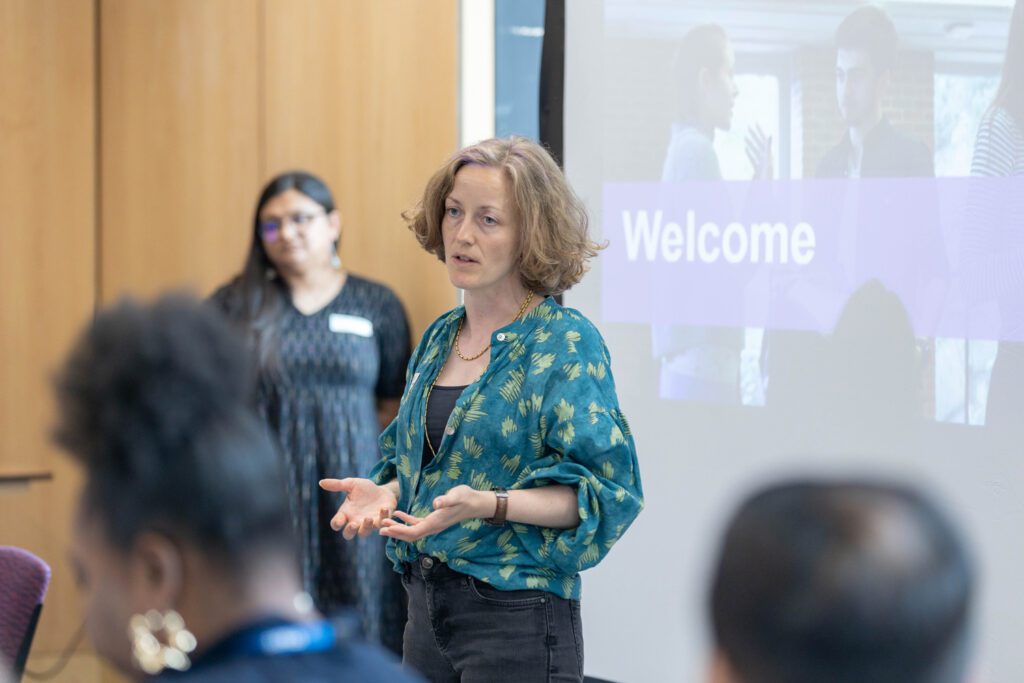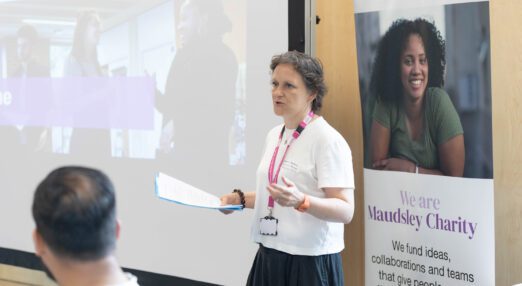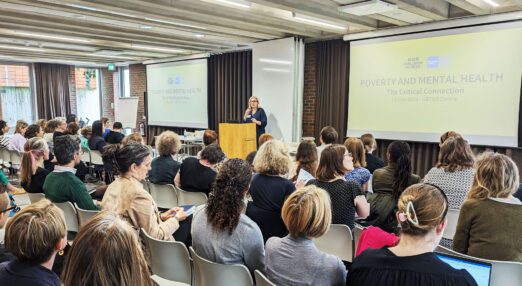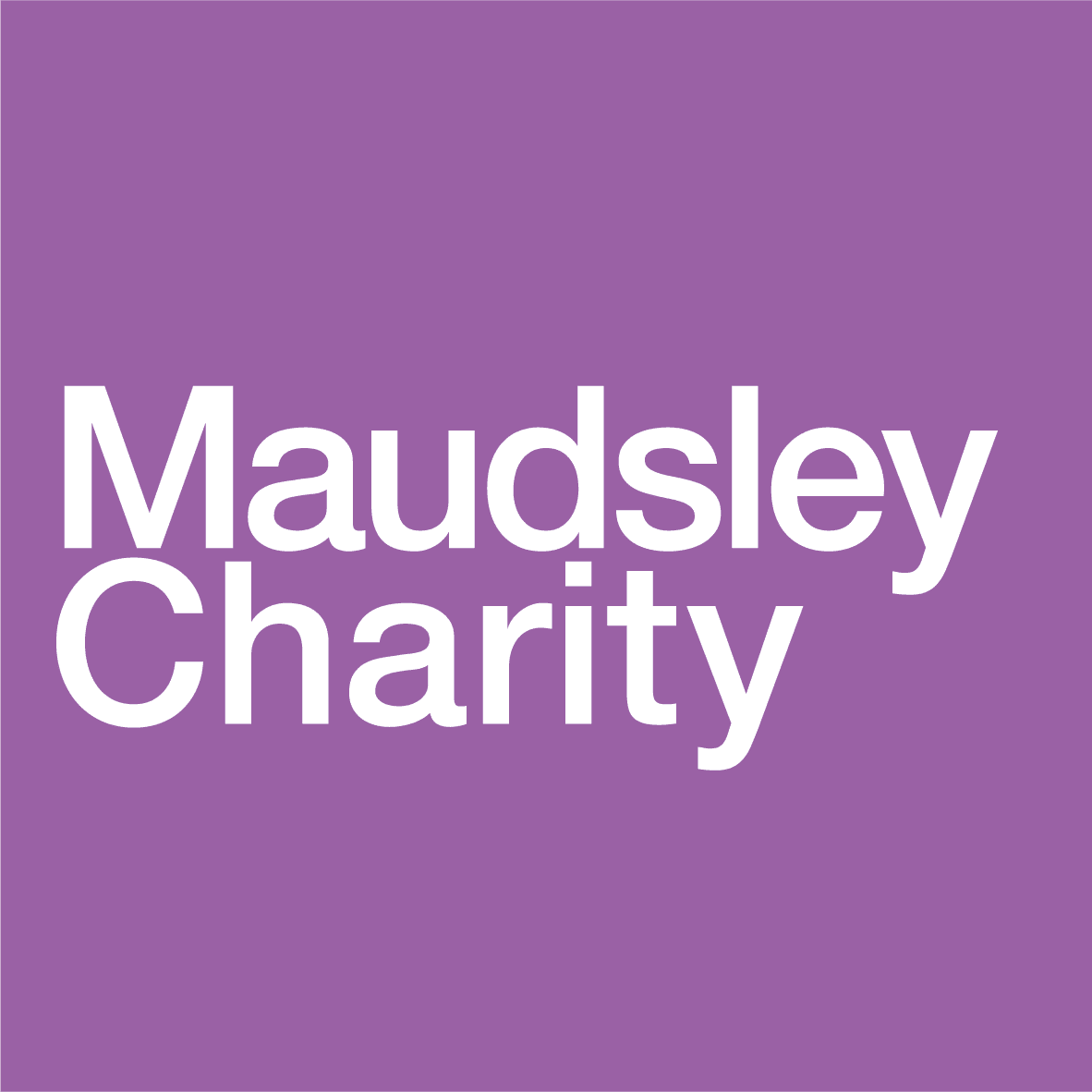Addressing the complexity of mental healthcare and support
How Maudsley Charity is becoming an inclusive grant-maker.
At Maudsley Charity we fund improvements and innovations in mental health care and support. Through this funding, we aim to make a real difference in the lives of people living with mental illness by focusing on those least well-served by existing systems of formal and informal care. That is where we believe we can make the most difference.
The connection between discrimination, inequity, exclusion and mental health are well-evidenced¹. They not only increase the prevalence and severity of mental illness, but they are obstacles to effective care – leading to negative experiences and poor outcomes. That’s why our approach to equity and inclusion is the essential foundation to the success of our mission.
To serve our communities well; we must actively listen to, engage with and respond to their needs and experiences. It is genuine understanding that we are striving for, and when working in a health care system we must understand the varied experiences of all involved. At the Charity, we aim to include and value all expertise that relates to the formal and informal systems. This means we include clinicians, those with lived experience, front line staff, and researchers; and we think that only by doing so can we make genuine progress on some of the many intractable problems in mental health care. The complex problems that we face in the health and care system require these varied perspectives and insights to make genuine progress².
What we fund, and how we fund
It is against this backdrop of systemic challenges that we chose to develop our long-term topic focus. To inform what we fund, we engaged with stakeholders to collaboratively develop two thematic areas of funding: Living Well with Psychosis and Building Brighter Futures. These funding programmes explicitly respond to issues of deprivation and inequality in outcomes and have strands of focus that address the impact of racism in experience of care.
However, topic focus can only take us so far. The way we fund and interact with stakeholders is also important in reaching beyond those most able to apply, to find new sources of expertise and new collaborators. Traditional funding models have been developed based on the expertise of a limited set of people. These inevitably create a level of exclusivity and narrow networks of access, where decisions were made by only a small group of topic experts. This approach missed out the insights and experiences of wider groups of people affected by a complex challenge, whether staff on the front line, patients, families or adjacent topic experts. In short, it missed the vital diversity of information that leads to a successful design process.
A further confounding factor is that the power imbalance between funders and grant holders hinders open and honest relationships based on trust. Grant holders naturally want to please the funder, to paint a more optimistic picture, and this makes genuine learning and reflection – and progress on challenging areas – more difficult.
Reflecting on the challenges of moving away from this approach, it’s easy to feel overwhelmed. But doing nothing, and accepting the status quo is not an option if we are to make progress for those least well served. We must take specific actions to move forward, not just to make statements or broad commitments. That’s the only way we can achieve the improvement and innovation that we most want to see. It means sometimes we don’t get it right, but we try to learn and adjust based on feedback.

Putting relationships at the heart of our approach
We do our best to build supportive and constructive relationships with grant applicants and to develop their ideas and to encourage best practice. We tailor our approach to each programme ensuring that it is proportionate to the purpose and aims of the grant programme, the size and number of the grants given, and the timeframe, budget and complexity of the challenges faced.
Inspired by the Trust Based Philanthropy movement and Institute for Voluntary Action Research (IVAR) amongst others, we committed to taking the following actions to change the power dynamics and structural barriers in place:
- Simplify and streamline paperwork.
- Be open and responsive.
- Solicit and act on feedback.
- Don’t waste time.
- Be proportionate.
We don’t always get it right yet, but we are listening and learning all the time.
Here are just some of the specific things that we are doing to be a more inclusive grant-maker:
- Welcoming and involving a diverse group of people in our programme design and decision-making processes, including people with lived experience.
- Monitoring the diversity of applicants and grant holders at different stages of the application process to flag up any bias within our decision-making processes.
- Monitoring the diversity of reviewers and support partners to assess the level of representation.
- Making our processes and timelines more transparent for applicants.
- Providing explicit tips for writing successful applications to support potential applicants with differing levels of experience in bid-writing.
- Offering guidance and feedback to support applicants to our larger grant programmes to refine and develop their applications.
- Taking a non-prescriptive and proportionate approach to reporting and, together with the grant holder, agreeing the appropriate outputs and outcomes to collect.
- Encouraging feedback from applicants and grant holders on our processes and communication to evaluate the effectiveness of our grant-making.
We plan to share our learning with other funding bodies who want to make progress on these issues – as sharing and learning openly is part of collectively progressing on these areas.
Ultimately, funding can be more strategic, rewarding and impactful if we approach relationships with grant holders from a place of trust and collaboration rather than focusing solely on compliance and control. We’re working to find the right balance to support inclusive approaches, and to challenge and understand the effectiveness of our funding. It is a journey, and we know there is always further to go.
For more, read about our general principles to grant-making.
Suggested reading
-

Our approach to grant-making
We fund a variety of people and teams, including clinicians, researchers and community organisations, but we have a set of principles that are really important to us and that we observe for all of our grant-making activities.
Read more
-

£2.5m to roll-out of Advance Choice Documents
We've committed over £2.5m in funding to a project that will result in the largest implementation and study of Advance Choice Documents in Europe.
Read more
-

The intersection between poverty and mental health
Maudsley Charity recently ran an event, in partnership with Children in Need, looking at the intersection between poverty and mental health.
Read more
